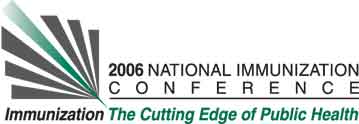Kim E. Radda1, Elsie Vazquez
1, Ken Williamson
1, Jean J. Schensul
1, Rita Jepsen
2, Debbye Rosen
3, and Laurie St. John
4. (1) Institute for Community Research, 2 Hartford Square West, Suite 100, Hartford, CT, USA, (2) University of Connecticut Health Center, Farmington, CT, USA, (3) Adult Immunization Program, State of Connecticut Department of Public Health, Hartford, CT, USA, (4) VNA Health Care, Inc, Woodland St, Hartford, CT, USA
Learning Objectives for this Presentation:
By the end of the presentation participants will be able to:
1. Identify barriers to influenza vaccination among older adults
2. Describe development and implementation a peer education intervention
3. Identify strategies for project sustainability
Background:
Influenza is one of the most vaccine-preventable diseases. However, among older minority adults, vaccination rates remain low and flu-related hospitalizations and mortality rates remain disproportionately high. To improve vaccine acceptability it is important to address concerns and misinformation regarding the flu, flu vaccination and issues related to health behavior change. The CDC, among others, has called for innovative, community-based approaches to improving vaccine acceptability in older minority adults. Needed are sustainable interventions that empower older minority adults to make active decisions about the benefits of flu vaccine for themselves, families and residential communities, and promote vaccine use among their peers.
Setting:
Senior housing sites, Hartford, CT
Population:
Older low-income, primarily minority adults
Project Description:
The purpose of this collaborative community-based study is to improve influenza vaccine acceptance among older low-income and minority adults in senior housing. It combines formative research on barriers to flu vaccine with a theory-driven, empowerment-based intervention comparing efficacy and acceptability of the intervention in one building to a matched building of approximately the same size and social composition. The project addresses disparities in vaccine use within this population, and focuses on improving vaccine rates through a peer-led empowerment intervention that engages older adults in annual vaccination campaign implementation and peer education within their building.
Results/Lessons Learned:
The study identifies barriers to influenza vaccine acceptability, and knowledge and attitudes about flu and flu vaccination among this population. It evaluates efficacy and sustainability of a peer-led health education intervention, compares the results of the intervention against vaccination rates, knowledge and attitudes in a matched control building, and provides a curriculum and strategies for expansion into other senior housing sites.
See more of Posters
See more of The 40th National Immunization Conference (NIC)

